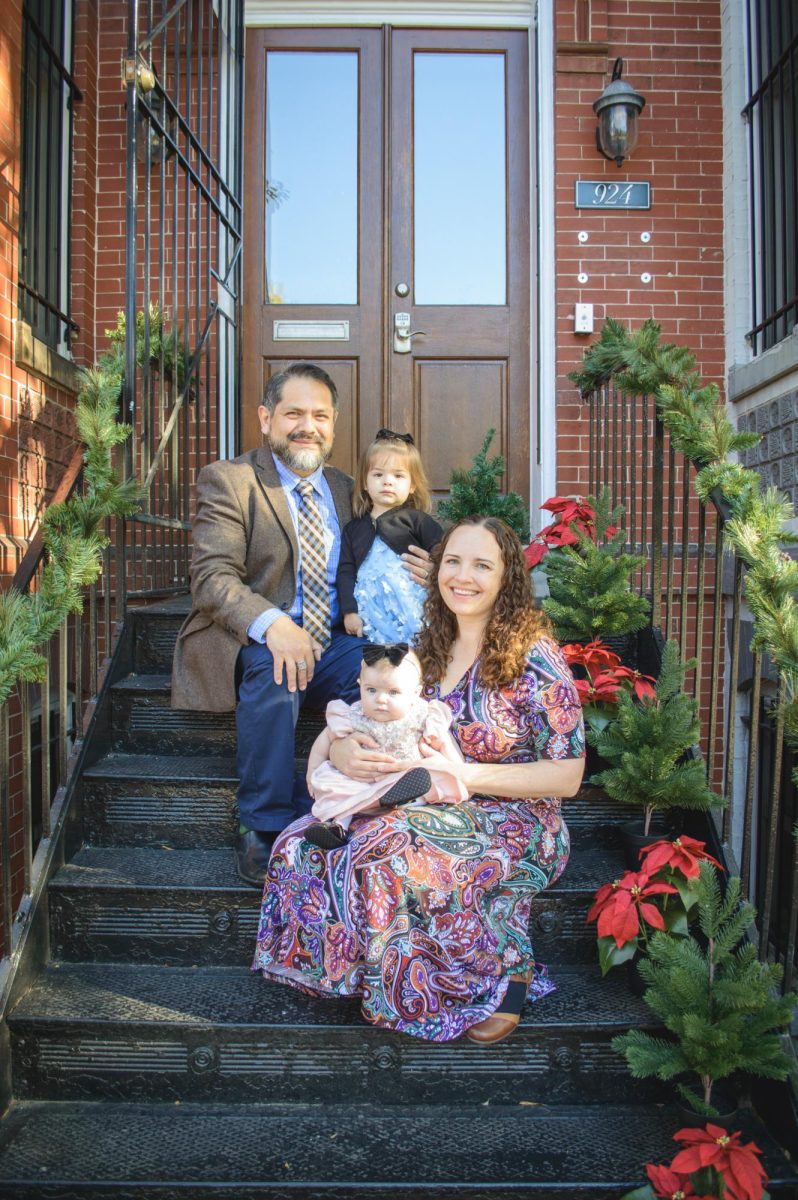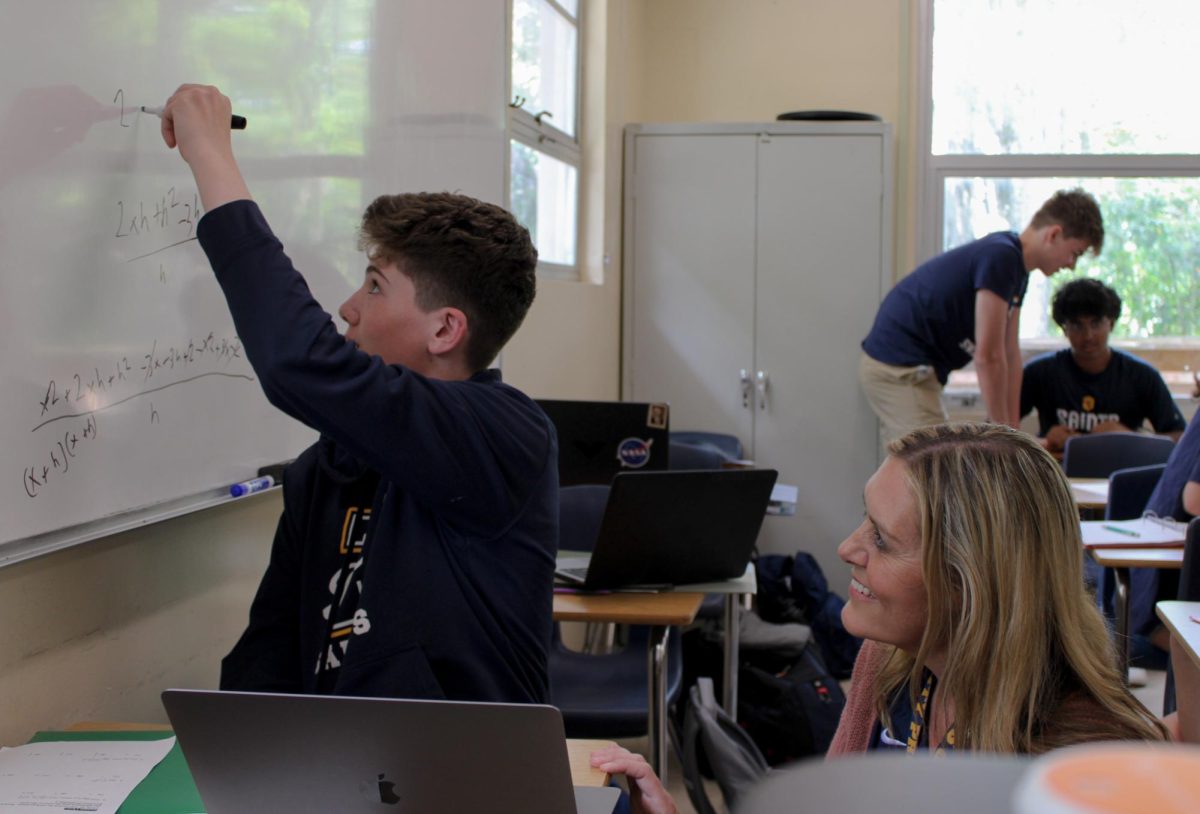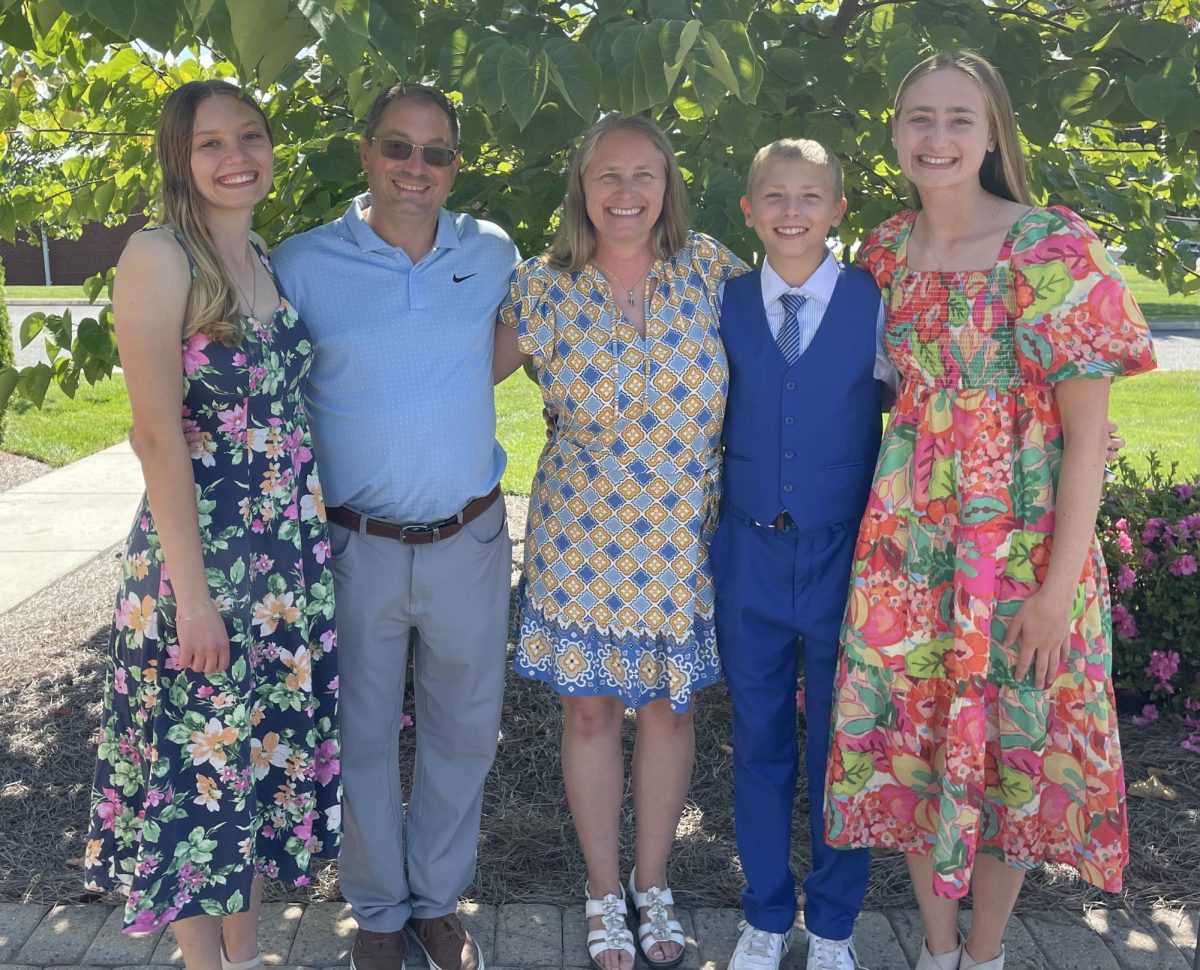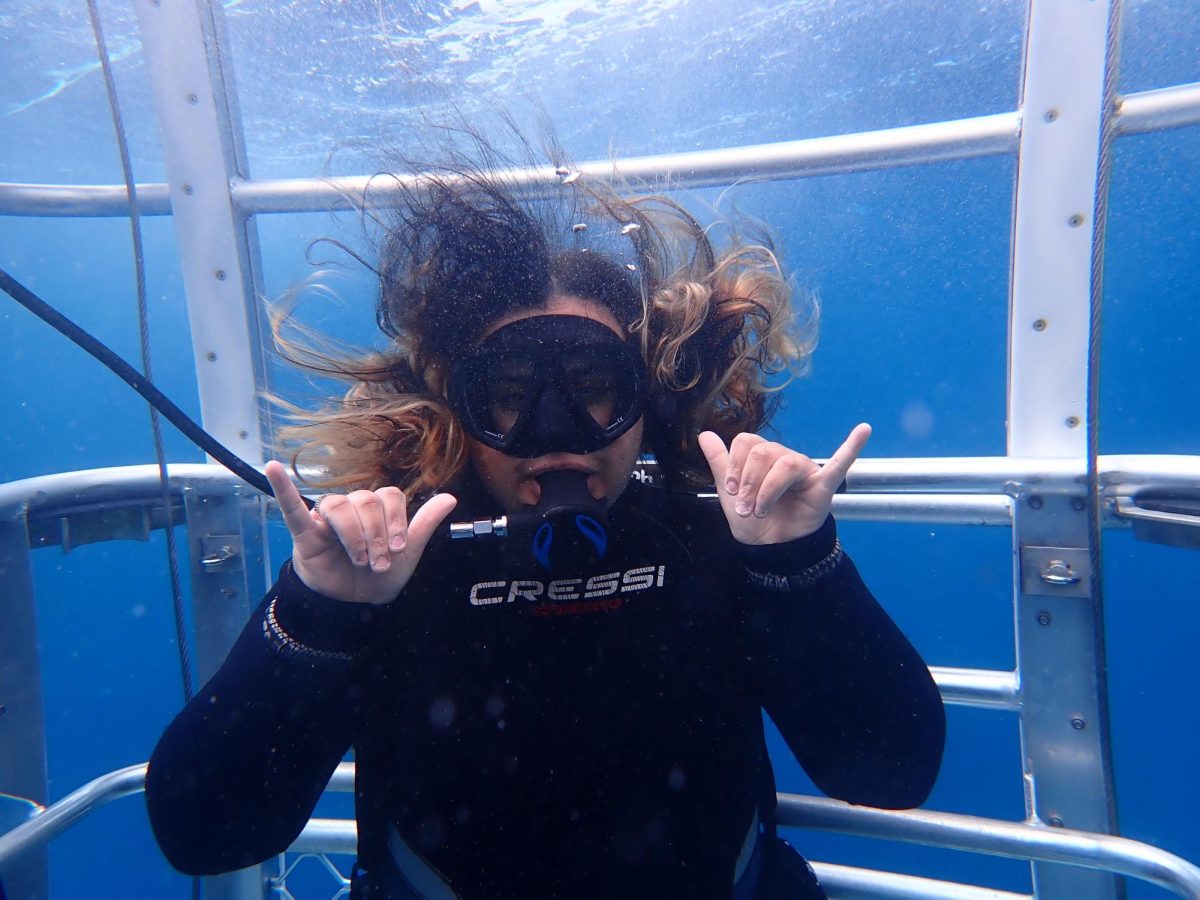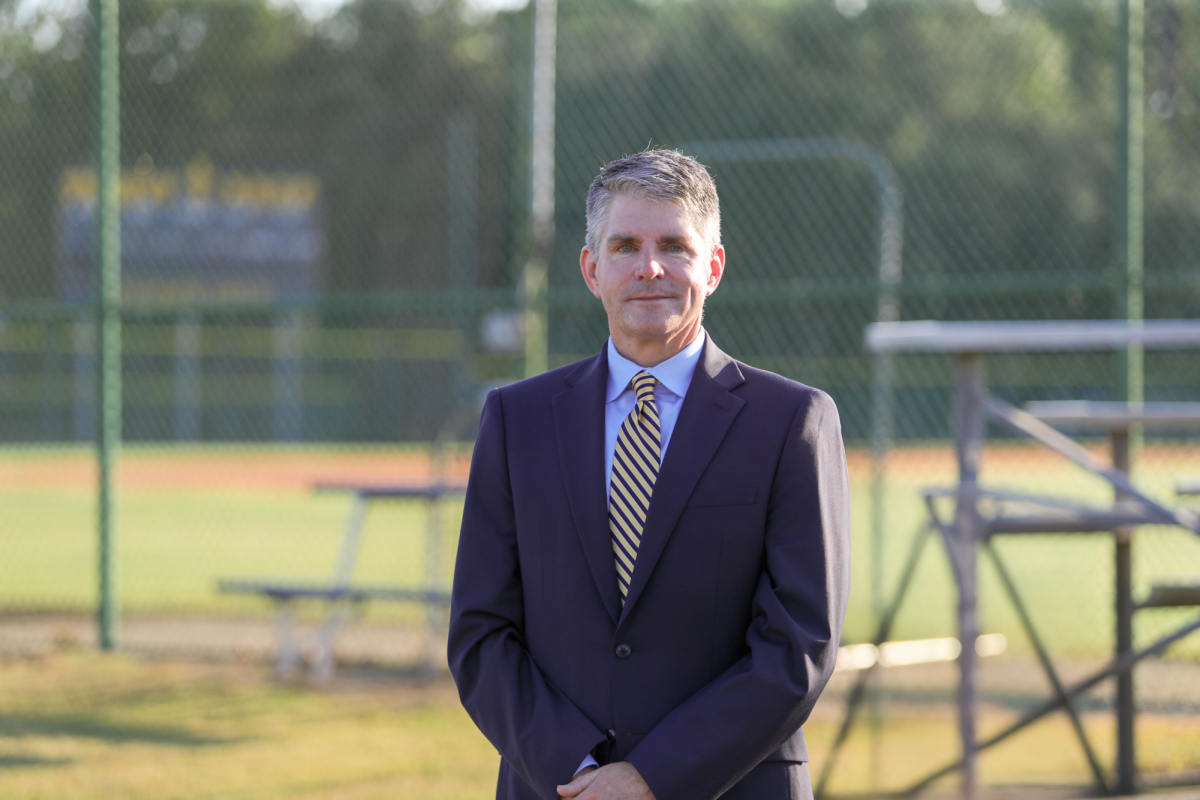Walking into your 3rd period class with some food after break is not uncommon here at Trinity and just tossing some of that extra food into the recycling bin isn’t either.
You may notice the blue bins in classrooms, the Grille, and all throughout the Quad as you walk around the Trinity campus. These bins are labeled for recycling of different plastics, papers, and other biodegradable waste.
These bins are labeled for recycling of different plastics, papers and other biodegradable waste. Trinity has recycling and trash services six times a week, and the recyclables are collected and recycled off campus. Cubic yards are the most common measurement for the volume of solid waste.
According to Facilities Director Jeff Sneed, Trinity is able to recycle 192 cubic yards each month. Many times these bins will be used by students for food and any type of liquid. Once recycling bins are compromised with different forms of liquids and food, Trinity is unable to recycle that whole bin. Trinity maintenance does recycle, but students on campus prevent that from happening.
“We try, the staff really tries, it’s just kind of challenging while some of the students around campus may not know exactly how it works,” Sneed said.
Whether it be workers in the Grille advising you to put your recycling in the recycling bins or trash in the trash cans, Trinity tries its best to make recycling a priority on campus.
Sneed thinks educating students on recycling at the beginning of the year would really benefit the cause. Doing so would help students think about where they are putting their garbage instead of just throwing it in the closest bin.
Sneed knows recycling has had its impact on not only Trinity but also the environment, as the Grille reduced its use of certain products.
“It’s made a difference around campus, especially in the Grille,” Sneed said.
Recycling has led to a reduced use of cans and an increased use of paper products. Students, faculty and others using more paper cups in the Grille helps better combat environmental problems.
Paper is better for the environment as it is biodegradable and breaks down much quicker and easier. Similar to Trinity, many public restaurants have begun using paper products, like straws, to help their surroundings.
Last year, Upper School Dean of Students Kelly Aull held a town hall meeting to discuss the issue. Around 20 kids were in attendance and the rumor that Trinity does not recycle was brought into conversation. The reason for this rumor was that the TPS Green Team lost its sponsor and students thought that there was nobody left on campus recycling.
On campus today, the TPS Green Team club is still in existence and sponsored by Science teacher Emily Massey-Burmeister. While the club does not meet as frequently, the members still discuss recycling on campus and work to reduce waste on campus and promote recycling. To widen the use of recycling on campus, these clubs have offered awards like casual days to promote recycling in the past.
According to Massey-Burmeister, the TPS Green Team has also worked with administration to effectively get students to understand recycling. Massey-Burmeister said certain places like college campuses do a great job of communicating to students what can and can’t be recycled. With time and commitment from students and administration, Massey-Burmeister believes that Trinity’s campus can also commit to consistent recycling.




